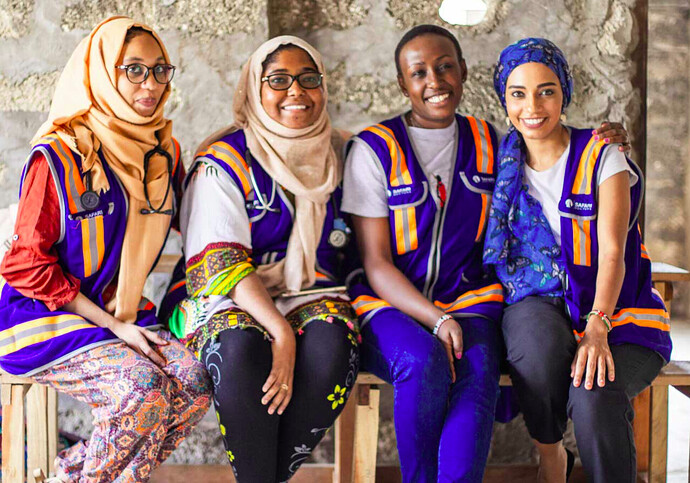Happy reading!
"Welcome to the August edition of the Community Health Impact Coalition (CHIC) Research Roundup.
This month’s Research Roundup (issue 106) contains four fantastic new studies. Some highlights include a qualitative evidence synthesis exploring how task-shifting approaches in LMICs can be optimized from the perspectives of health workers, as well as participatory approaches to CHW curricula development in the Peruvian Amazon.
ISSUE 106.
July 19 - August 15 2023
1. Perspectives of health workers engaging in task shifting to deliver health care in low-and-middle-income countries: a qualitative evidence synthesis.
Geographical region: LMICs
Of particular interest to: Program managers and policy makers.
Study aims: To generate new knowledge about what influences health workers perspectives of benefits and costs of engaging in task shifting.
Key messages:
- How health workers view themselves has important implications for task-shifting approaches.
- Where task shifting aligned with personal values, and personally considered support and resource needs, health workers expressed positive views and were more likely to participate in task shifting.
Implications:
- When considering a task-shifting approach to CHWs it is important to proactively involve CHWs in this process to understand facilitators and barriers. Task shifting should ideally be considered and planned. Unregulated, opportunistic task shifting should be avoided.
Read the full study here.
2. Development of a Digital Program for Training Community Health Workers in the Detection and Referral of Schizophrenia in Rural India.
Geographical region: India.
Of particular interest to: Program managers; those interested in roles for CHWs to support mental health.
Study aims: To develop and assess the acceptability of a digital program for training CHWs in the detection and referral of patients with schizophrenia in rural community settings.
Key messages:
- Participatory involvement of CHWs in the development of digital training tools is important.
- Digital training can help dispel common myths around mental health disorders and can help training be delivered in culturally appropriate manner.
Implication:
- Leveraging digital technology for building capacity of CHWs to support early detection and referral of schizophrenia in community settings in rural India is acceptable and this model could be scaled to other regions.
Read the full study here.
3. Ethics and professionalism among community health workers in Tamil Nadu, India: A qualitative study.
Geographical region: India (but with global relevance).
Of particular interest to: CHW program managers and those responsible for CHW training and supervision.
Study aims: To explore and document CHWs knowledge of issues related to ethics and professionalism.
Key messages:
- CHWs understanding of core ethical topics relevant to healthcare providers (such as autonomy) was extremely variable – ranging from shared, to full paternalistic decision making.
- CHWs could benefit from further training and counselling on issues around privacy and confidentiality.
Implication:
- Context specific training around ethics and professionalism for CHWs would be beneficial.
Read the full study here.
4. The Creation of a Field Manual for Community Health Workers to Teach Child Health and Development During Home Visits: A Case Study of Participatory Content Creation.
Geographical region: Peru.
Of particular interest to: CHW program managers; those interested in curricula design (especially those on the WHO Technical Advisory Group for CHW curricula design!)
Study aims: To document the participatory co-design of a field manual guidebook and animated videos to support CHWs working in the Peruvian Amazon.
Key messages:
- Culturally appropriate training mateirals for CHWs are often lacking.
- Current training materials are often in print-only format and would benefit from alterantive media – such as drawings, videos and culturally relevant story-telling forms of knowledge construction.
Implication:
- To maximise cultural relevance and acceptability of training materials participatory design can be crucial.Organisations should consider incorporating design thinking methodology and participatory content creation workshops with all key stakeholders to maximise impact.
Read the full study here."
